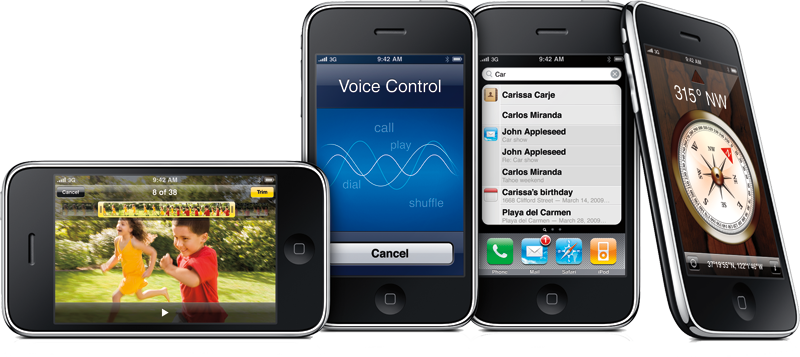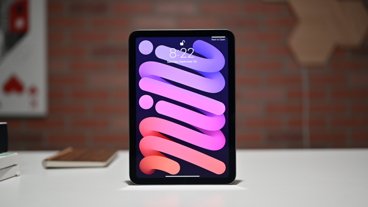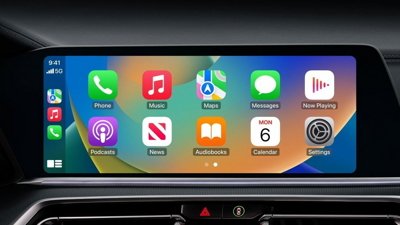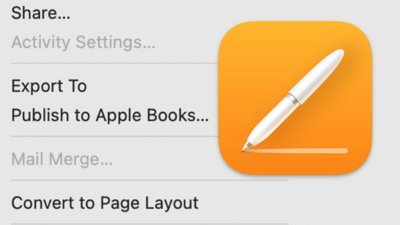During Apple's last quarterly earnings conference call, company officials revealed that the average selling price of the iPhone is nearly $660. But consumers pay much less than that, with the difference subsidized by carriers in exchange for signing a new two-year service contract.
While that strategy has worked very well in countries like the U.S., U.K. and elsewhere, where carrier subsidies are the norm, it has presented problems for Apple in markets that are predominantly prepaid. Profiling this issue on Monday, The Wall Street Journal declared that cheaper Google Android phones are "crushing the iPhone" in European countries hit hardest by the ongoing debt crisis.
"Its performance in parts of southern Europe where most consumers don't sign contracts and have to pay full freight for phones suggests Apple's position could suffer if carriers tire of underwriting most of the cost of the devices, as some are in countries such as Denmark and Spain," the report said.
Data from IDC shows that Android took well more than half of the smartphone market in Greece and Portugal in 2011, while Apple had a very small presence both countries. It's a very different story in the U.K. and U.S., where Apple took roughly 25 percent of the entire smartphone market in 2011.
Greece's top-selling smartphone last year was the Samsung Galaxy Mini, which sells for just $188 without a contract. For comparison, an older model 8-gigabyte iPhone 4 sells new for $680 without a subsidy in Portugal.
Apple Chief Executive Tim Cook said last October that the prepaid market is "very, very important" to his company. He said that was one of the reasons the company continues to sell its entry-level iPhone 3GS, to reach lower price points in both prepaid and postpaid markets.
There have been rumors for years that Apple plans to introduce a so-called "iPhone nano" to increase its presence in prepaid markets, particularly China. But so far Apple has declined to build an entirely new model for emerging markets, opting instead to continue to sell previous-generation handsets at a lower price.
 Slash Lane
Slash Lane







-m.jpg)






 William Gallagher and Mike Wuerthele
William Gallagher and Mike Wuerthele
 Andrew Orr
Andrew Orr

 Amber Neely
Amber Neely
 Mike Wuerthele
Mike Wuerthele
 William Gallagher
William Gallagher









110 Comments
The Wall Street Journal declared that cheaper Google Android phones are "crushing the iPhone"
That can't be correct.
the average selling price of the iPhone is nearly $660. But consumers pay much less than that
No. Consumers do not "pay much less than that". Consumers pay more than that if they go with a contract - they pay much less up front but essentially what they've done is taken out a high-interest loan from their carrier and used it to pay Apple for the phone.
Apple, force all carriers to drop the forced data plans. Simple.
No. Consumers do not "pay much less than that". Consumers pay more than that if they go with a contract - they pay much less up front but essentially what they've done is taken out a high-interest loan from their carrier and used it to pay Apple for the phone.
Its not high interest when you have to pay the same to higher amounts to be in prepaid.
It's no surprise that in countries like Greece, people are opting for cheap Android phones.
What matters most is to sell to people who actually have money and the iPhone is doing quite well in those places.
Unless Apple decides to make some really cheap, low featured phone, which would go against their philosophy, then I'd say that this is not an issue to be concerned with. There is enough demand for Apple products as it is, we don't need a bunch of people with no money queuing up for Apple products also. Is the goal to sell an iPhone to every person on the planet? I sure hope not.
Apple needs to remain a premium brand, selling premium products to customers who appreciate it.
There's also a rumor going around today about the iPad 3 being priced at $579! Awesome! All that extra technology and the amazing screen comes at a price! Apple is not for cheapskates!